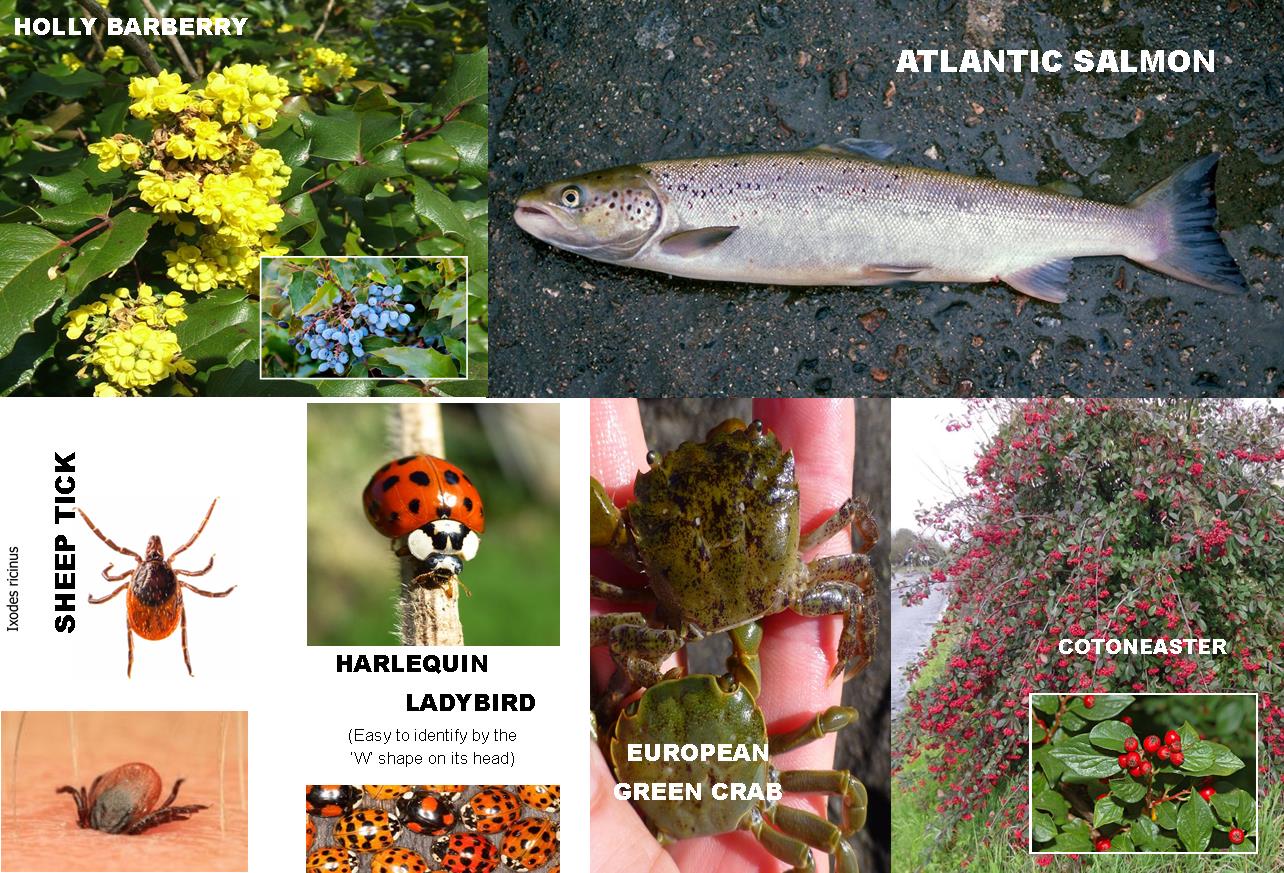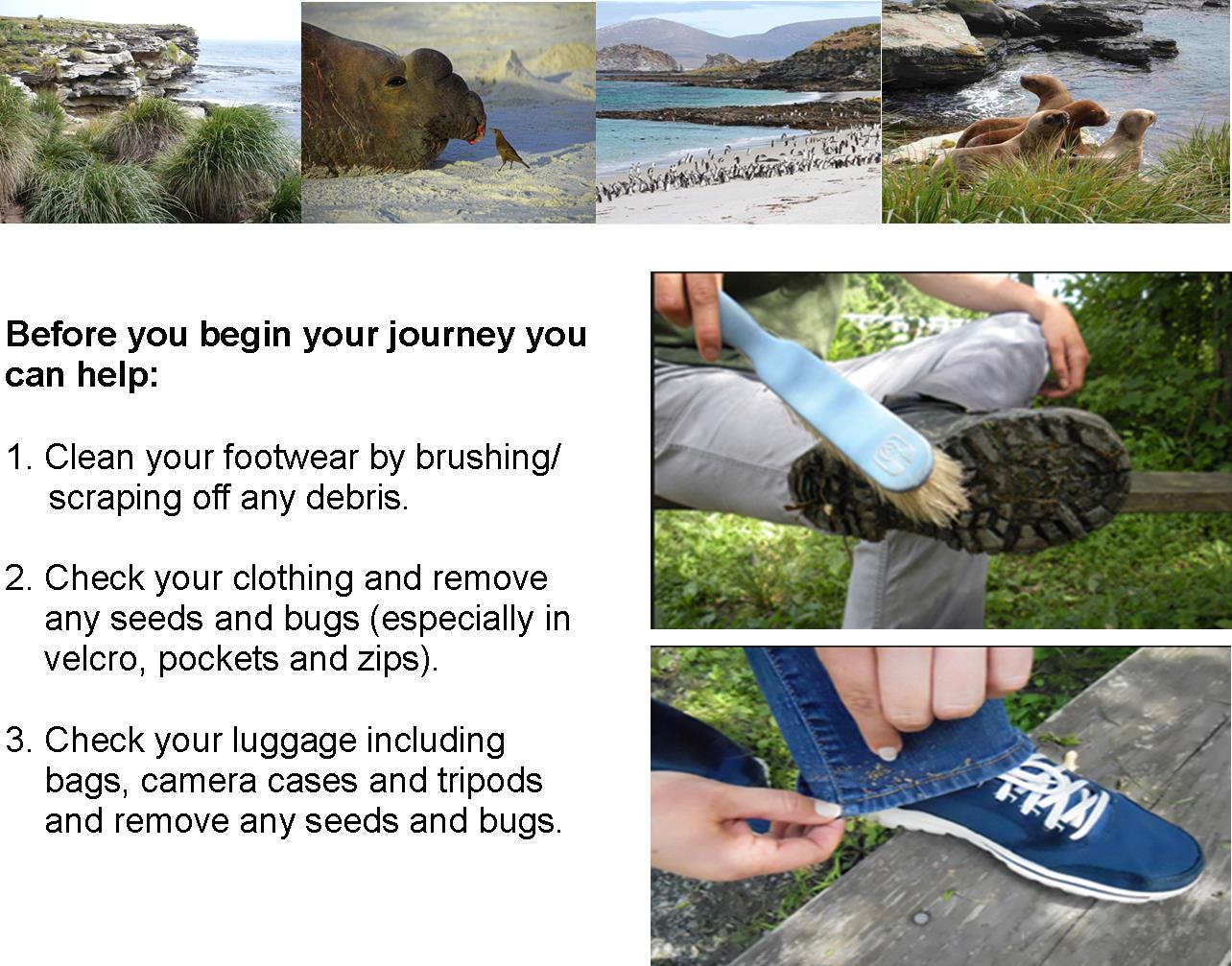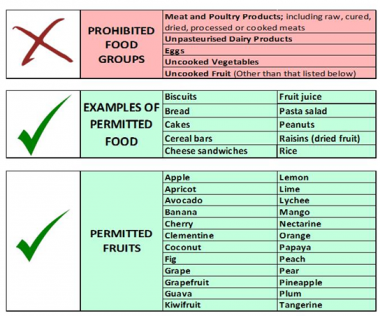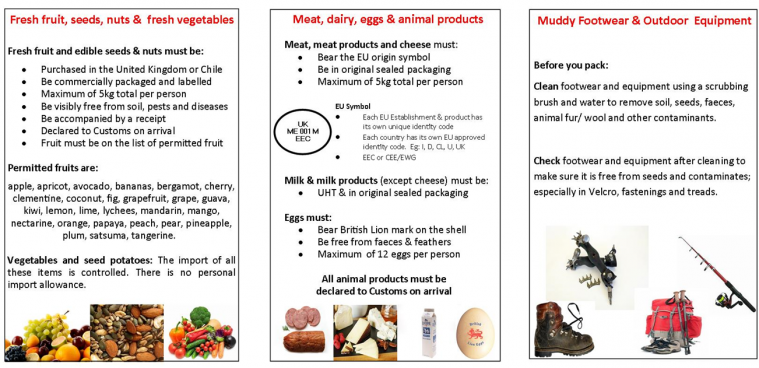Biosecurity - Finding & Reporting
At Biosecurity we are always on the lookout for new bugs, plants and animals that could be harmful to our environment and industries. If you spot a known biosecurity risk or anything unusual, you can send a sample to us at the Department of Agriculture, or send a photo, or just contact us at This email address is being protected from spambots. You need JavaScript enabled to view it. with the details.
Here are some things from our 'Most Unwanted List'...

Horse Flu Alert
Horse flu is now spreading in the UK and it has been a problem in South America for the last few months.FIG Biosecurity continue working with Customs & Immigration staff to raise public awareness and conduct checks at the border to try and prevent this devastating disease from entering the Falkland Islands.
Didymo Spotted In Patagonia
Didymo (Didymosphenia geminata) - also known as 'ROCK SNOT' has been spotted in Patagonia. It is an extremely invasive freshwater algae that is not in the Falkland Islands, and we do not want it here either!!
Avian Influenza
Since the beginning of 2022, the increasing intensity of highly pathogenic avian influenza outbreaks has resulted in the deaths of hundreds of thousands of seabirds in the Northern Hemisphere, it is possible that the avian influenza will arrive in the Falkland Islands, with migratory birds as the most probable vectors but also through visitors clothing and outdoor equipment. Information Campaign Falkland Islands Avian Influenza
Biosecurity - Importing & Exporting Goods
Importing Goods
Some goods require an import permit to be issued prior to their arrival in the Falkland Islands. See the relevant Import Permit application forms below. Return completed forms to This email address is being protected from spambots. You need JavaScript enabled to view it.
Importers Information:
Fruit and Vegetables, Bulbs, Plants and Plant Material:
Foods of Animal Origin (FOAO) from non-EU approved providers:
Animals and Animal Medicine:
Contact This email address is being protected from spambots. You need JavaScript enabled to view it.
Biological Cultures:
Vehicles:
Any other items, including Organisms, Soil and Products from animals of endangered species:
Contact Biosecurity Imports
Exporting Goods
Refer to our Export Guidelines below or contact This email address is being protected from spambots. You need JavaScript enabled to view it. for more information.
Biosecurity - Arrival by Sea
Biosecurity is concerned with preventing new pests, diseases or invasive species from entering the Falkland Islands. See our guide to travelling within the Islands for advice on preventing the spread of contaminates.
Some food groups present a high biosecurity risk and for this reason a 'Food Ashore Policy' is in place as seen below:
Disposal of International Catering Waste (ICW) - applicable to all sea vessels
International catering waste (ICW) is considered to be food, galley waste and associated packaging sourced from outside of the Falkland Islands EEZ. ICW carries a risk of introducing pests and diseases and must be disposed of by either incineration or through deep burial. Food waste may be disposed at sea according to MARPOL regulations, but packaging needs to be incinerated onboard or disposed ashore.
- Vessels at FIPASS: ICW must be sealed in plastic bags and placed in the designated yellow ICW / Galley Waste bin.
- Yachts at other moorings: ICW must be sealed in the yellow biohazard bags issued to you by Customs upon entry to the Falklands. Customs will collect the bags for safe disposal when clearing your vessel for departure. Alternatively ICW can be disposed of at the Department of Agriculture, in the yellow bin situated in the corner of the car park.
Please This email address is being protected from spambots. You need JavaScript enabled to view it.if you have any further questions in relation to your visit.
Biosecurity - Inter-Island Travel
The Falklands are made up of over 750 islands, each with its own mix of plants and animals. Many invasive species, pests and diseases are confined to just a few areas so it is important that we do all we can to prevent the spread of organisms around and between the islands.
Dirty boots, clothes, outdoor equipment and vehicle tyres can introduce pest plants and creatures and also transmit disease from an affected wildlife colony to a clean one. To limit the risk it is important for ALL people travelling around the Falkland Islands by land, sea or air to clean any dirty items between trips. This is particularly true if there are known or suspected cases of contagious wildlife diseases in the area.
Contaminates should be brushed off footwear, clothing and equipment. Ideally the removed debris should be bagged and destroyed. To prevent spread of disease, a disinfectant boot dip such as Virkon should be used to clean footwear. If this is not available a weak bleach solution will be sufficient. Disinfectants will not stop invasive weed seeds from growing.
Sightings of diseased wildlife should be reported to the land owner and the Department of Agriculture (Tel: 27355).

If you have any other queries regarding Inter-Island travel, then please This email address is being protected from spambots. You need JavaScript enabled to view it..
Biosecurity - Travelling to the Falkland Islands
Be biosecurity aware when packing for your trip to the Falkland Islands
Click here for printable version:
The above baggage allowance guidelines apply to imported goods for personal use only. These items must be declared to Customs on arrival and will be subject to inspection. Please note - goods may be confiscated if the above criteria is not met, or if they are not declared on arrival.
If you wish to import greater quantities or controlled products of animal or plant origin, further information can be found in our Importing & Exporting section.
Used fishing equipment may carry harmful aquatic algae or pathogens and should be thoroughly cleaned before leaving home. More information can be found here:
Please contact us at Biosecurity Imports if you have any further questions in relation to your travel to the Falkland Islands.



